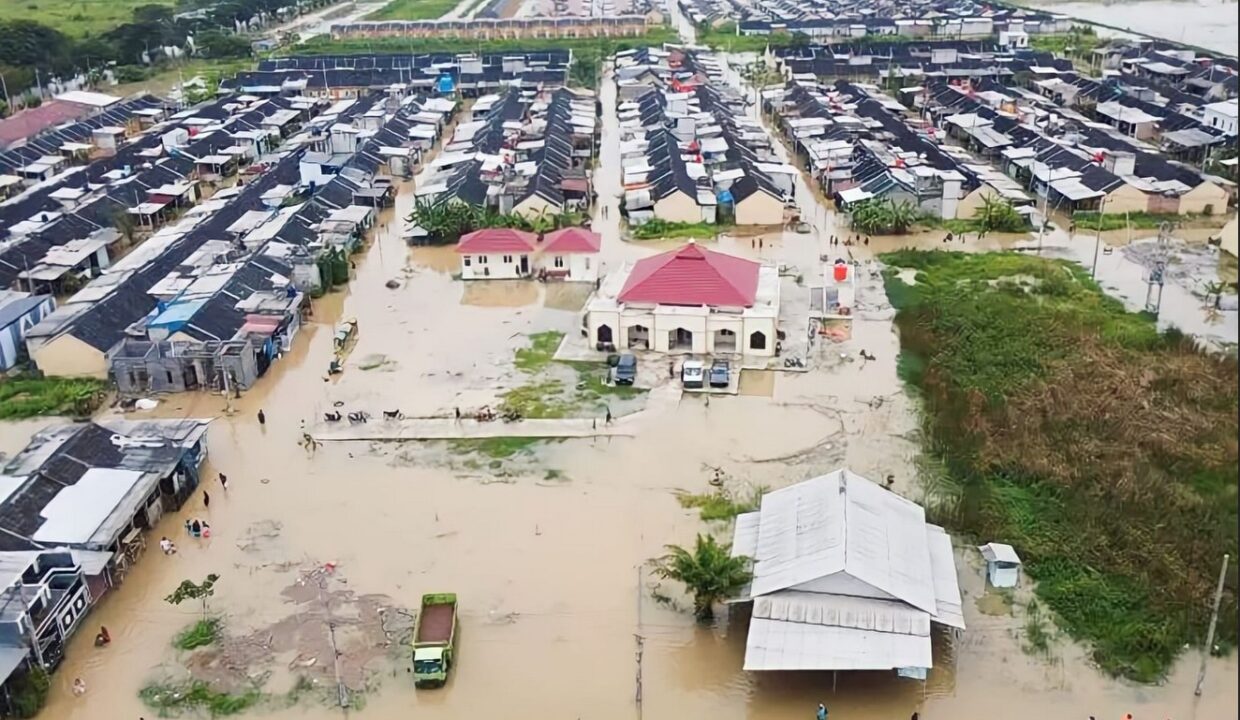
Flooding has become a growing concern in Indonesia, particularly in major urban areas like Jakarta and Semarang. The flood impact on property market has been significant, affecting property values, buyer confidence, and development practices. Homebuyers are now more cautious about investing in flood-prone locations, while developers and the government face pressure to improve flood mitigation efforts.
Flood Impact on Property Market in Indonesia
The effects of flooding on Indonesia’s real estate sector are most evident in the residential market. Properties in flood-affected areas tend to lose value as buyers prioritize safety and accessibility. According to Angra Angreni, Manager of Research & Consultancy at Coldwell Banker Commercial, “There will certainly be price adjustments for flood-affected properties, both in the secondary and primary markets.”
Beyond price drops, flooding also damages infrastructure and facilities, forcing developers to spend heavily on repairs. “Developers must allocate extra funds for construction, material distribution, and other repair costs,” Angra added. These additional expenses increase financial burdens and slow down new projects, further shaping market dynamics.
Property Value Decline in Flood-Prone Areas
Homes in flood-prone locations often experience steep price drops after repeated disasters. For instance, in Semarang, where major floods occurred in 2021 and 2022, property values declined significantly. Martina Sunarti, Manager at Interflow Property, confirmed this trend: “Property prices in Semarang drop significantly after floods.”
Buyers looking for homes now prioritize flood-free areas, using online resources and social media to research risks. Many also assess drainage conditions, elevation levels, and visible flood damage, such as water stains on walls. Additionally, checking the Regional Spatial Planning (RTRW) through the Ministry of Agrarian Affairs’ Gistaru website has become a crucial step for informed property decisions.
Real Estate Investment Risks for Buyers
Investors are now more cautious about purchasing properties in flood-prone zones. Long-term concerns include depreciation, costly repairs, and potential resale difficulties. Some buyers opt for homes in elevated locations, while others delay purchases to observe how cities manage flood risks over time.
Moreover, misleading marketing by certain developers has created further skepticism. Many homebuyers have fallen for promises of “flood-free” housing, only to experience severe flooding soon after moving in. This has led to a loss of trust in developers and an increased demand for stricter regulations.
Government Regulations on Flood-Prone Housing
The government has recognized the urgency of addressing flood risks in the housing sector. In West Java, Governor Dedi Mulyadi announced plans to audit developers who falsely market their projects as flood-free. “Many housing projects that were once marketed as flood-free are now experiencing two-meter-deep flooding. We will conduct an environmental audit of all flooded housing developments in West Java,” he stated.
Aside from auditing, authorities are considering stricter zoning laws and land-use policies. These measures aim to prevent reckless property development in high-risk zones and encourage developers to adopt flood mitigation strategies, such as creating artificial lakes, increasing green spaces, and improving drainage systems.
Future of Indonesia’s Housing Market Amid Flood Risks
As climate change intensifies, Indonesia’s property market must adapt. Homebuyers and investors are increasingly prioritizing sustainability and flood resistance when selecting properties. Developers, in turn, must take accountability for building responsibly and ensuring that homes are resilient to extreme weather.
The flood impact on property market is a pressing issue that cannot be ignored. Collaboration between the government, developers, and homebuyers is crucial for building a safer, more sustainable real estate landscape in Indonesia. If proactive steps are taken, the housing market can remain strong despite ongoing environmental challenges.
Source: ekonomi.bisnis.com, konservasidas.fkt.ugm.ac.id, propertyandthecity.com
Image: AntaraNews/Fakhri Hermansyah
